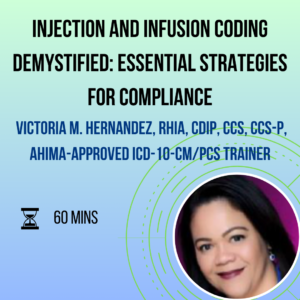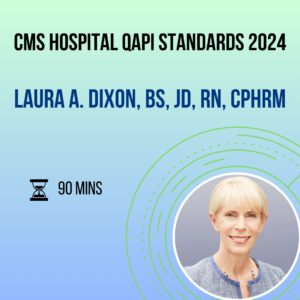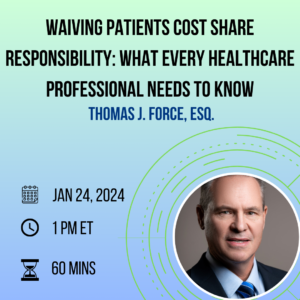Marketing and Empathy Psychology
HIPAA Privacy Exceptions for Law Enforcement Purposes Applied to Health Care Professionals
By - Mark R. Brengelman
Lorem ipsum dolor sit amet, consectetur adipiscing elit. Ut elit tellus, luctus nec ullamcorper mattis, pulvinar dapibus leo.
- 06 Aug - 21 Oct 2022
- 10:00 - 12:00
- October 2, 2024 | Available all day |
- 60

HIPAA Updates for the Exceptions for Law Enforcement Purposes
This advanced webinar answers the following questions: What power does the state have to use a HIPAA exception to confidentiality? How does one comply with a request when it does apply?
What medical or other records are obtained that apply to a civil or to a criminal investigation? What pitfalls are there to noncompliance?
This webinar goes over the many law enforcement exceptions where health care practitioners are faced with demands for a law enforcement or public purpose that overrides the strict confidentiality of HIPAA and a patient’s expected right to privacy.
Both criminal and civil public purposes for law enforcement exceptions exist that may burden the health care practitioner with requests that must be complied with.
Take a deeper look into how state licensure agencies go about their unique government investigations and obtain protected health information to further their own state-mandated, investigative purposes.
Agenda:
- The basics of HIPAA privacy;
- The basics of HIPAA privacy exceptions with patient consent;
- Exceptions to HIPAA privacy for law enforcement purposes for civil matters;
- Exceptions to HIPAA privacy for law enforcement purposes for criminal matters;
- How exceptions to HIPAA privacy are applied by law enforcement agencies, with an emphasis on state licensure boards and agencies;
- How you may comply to a request for Protected Health Information when the patient is in trouble and law enforcement is involved;
- How you may comply to a request for Protected Health Information when you are in trouble;
- Case law from the courts regarding HIPAA privacy exceptions for law enforcement purposes.
Why should you attend:
You should attend this webinar for information on the many HIPAA exceptions for law enforcement purposes. While the basic provisions of privacy for protected health information are well known for covered entities, exceptions abound for the various law enforcement purposes as applied to both the federal and state government and its law enforcement activities.
You must erase the fear, uncertainty, and doubt by knowing the medical records privacy exceptions for law enforcement under HIPAA. Health care professionals must be aware of the many exceptions to confidentiality for protected health information when the government comes calling.
These can include both criminal and civil investigations as well as administrative investigations and actions. Erase the uncertainty and doubt that exists when the health care practitioner is confronted with a police demand for information or a demand from a government investigator.
What can you release? To whom? Do you have to notify the patient? Should you notify the patient? What must you document as a permitted disclosure when the police come calling?
Find out in this informative webinar that arms you with a fuller knowledge of the HIPAA privacy exceptions for law enforcement purposes.
Who Should Join:
Health care law attorneys; licensed health care practitioners in private practice; medical directors of health facilities; office managers and medical directors of private medical offices; health care managers and executives; corporate counsel in health care; health care administrators; university faculty in health care; allied health professionals in graduate-level medical education across the many health care professions; corporate compliance officers
Vulputate eros arcu magnis donec sem pretium scelerisque a etiam. Eros aliquam elit si mattis phasellus at orci letius ligula posuere. Sodales maecenas facilisis diam egestas dictumst si fames mus fermentum conubia curabitur. Ornare nisi consectetur semper justo faucibus eget erat velit rhoncus morbi.
Speaker Detail

Mark R. Brengelman
Mark holds Bachelor’s and Master’s degrees in Philosophy from Emory University and a Juris Doctorate from the University of Kentucky. Retiring as an Assistant Attorney General, he now represents: • health care professionals; • two government health care licensure boards, and; • parents and kids in confidential child abuse and neglect cases, termination of parental rights, and adoption proceedings Mark has worked for all three branches of government. He is a frequent continuing education presenter around the country having presented continuing education for over 50 different national and state organizations and private companies. Mark helps his clients navigate the law and ethics and make the rules understandable as applied to them.
Webinar Information
- Duration : 60
- Date: October 2, 2024 | Available all day
- 06 Aug - 21 Oct 2022
- 10:00 - 12:00
- Jakarta, Indonesia
Share this event
Related products
-

Injection and Infusion Coding Demystified: Essential Strategies for Compliance
$199.00 – $299.00 Select options -

CMS Hospital QAPI Standards 2024
$199.00 – $349.00 Select options -

Common Findings in Coding Audits
$199.00 – $349.00 Select options -

Waiving Patients Cost Share Responsibility: What Every Healthcare Professional Needs to Know
$199.00 – $349.00 Select options



